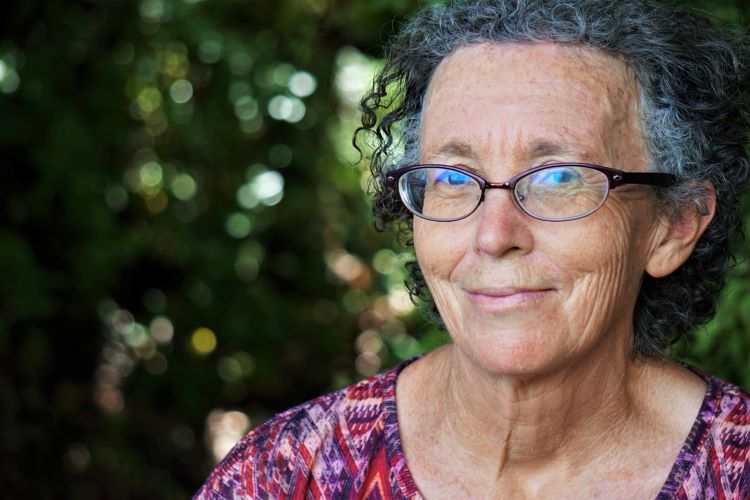Drug & Alcohol Rehab in Aspire
In the wake of covid-19, thousands across the UK have admitted to battling substance dependencies or having relapsed after years of recovery.
The executive of Change Grow, Mark Moody, has recently shared the organization’s findings – stating that “the global coronavirus pandemic has, and continues to, impact vulnerable people most.
This includes people with chronic health problems linked to drug use and people without a place to live”.
Unfortunately, addiction is an illness with a wide reach within communities – including Aspire.
If you’re experiencing struggles relating to substance dependency, professional help is within reach.
Here at OK Rehab, we’ve made it our mission to provide personalised referrals for each of our clients.
By using a profile of your individual needs, we’ll match you with a leading drug & alcohol rehab in Aspire, or the surrounding area.
What is Substance Use Disorder?

Once scrutinized as a lapse in judgment, addiction has now been recognized as a medical condition: Substance Use Disorder (SUD).
While the initial decision to use drugs or alcohol may be a choice, those with SUD will be unable to regulate their consumption.
With control impairment as its main symptom, addiction causes extreme cravings in its victims that override all other thoughts.
This means that in spite of negative consequences, an individual cannot break the cycle of addiction – and are met with withdrawal symptoms when they try.
As there’s no definitive cause behind SUD, research has shown that this disease can affect anyone regardless of gender, ethnicity, or background.
As stipulated by the CoA, addiction is “caused by a combination of behavioral, environmental, and biological factors”, similar to diabetes or heart disease. Its ability to be inherited is also agreed upon by experts.
For example, those who have a parent with alcoholism are 3-4 times more likely to develop the condition themselves.
While this may provide the basis for SUD in some cases, there are other exterior factors to consider, such as underlying mental illnesses, past trauma, or work-related stress.
At OK Rehab, we offer free advice from a team of non-judgemental professionals, many of whom are in recovery and understand how hard it can be to change your relationship with addiction.
To find out more about rehab in Aspire, simply reach out to our 24/7, confidential hotline on 0800 326 5559.
What motivates people seek professional help?

Oftentimes, those who have achieved long-term recovery for SUD remember having a “wake-up call” prior to starting treatment.
This refers to a specific moment in time when the motivation to seek help begins, and unfortunately comes after a loss of some kind.
Whether it’s the loss of health, an important relationship, or financial stability, each are a source of either intrinsic or extrinsic motivation.
At OK Rehab, we offer free advice from a team of non-judgemental professionals, many of whom are in recovery and understand how hard it can be to change your relationship with addiction.
To find out more about rehab in Aspire, simply reach out to our 24/7, confidential hotline on 0800 326 5559.
1. Intrinsic motivators

These behaviors are driven by internal rewards and come from within the individual rather than their social or environmental situation. In the context of seeking help for addiction, intrinsic motivation often arises from physical or psychological symptoms.
Victims of SUD will notice a decline in health: such as chronic fatigue, insomnia, heart palpitations, or a drastic change in weight.
These are often accompanied by a lapse in mental wellbeing: such as increased anxiety, depression, paranoia, or symptoms of psychosis.
Tragically, the internal symptoms of substance dependency will only get worse over time: leading many to seek professional help in order to improve short and long-term health.
2. Extrinsic motivators

Conversely, extrinsic motivation represents the external features of an individual’s life.
In the case of addiction, this is the drive to preserve what’s most important to someone, such as relationships, finances, and belongings, or careers.
Many people with severe SUD will withdraw from loved ones, behave secretively to conceal their substance use or deny that they have a problem.
Over time, this can cause the destruction of relationships or ultimatums provided by family members that lead to professional treatment.
As a substance dependency grows, so too does the cost. An individual’s income may be stretched so much that they can afford nothing else: causing debt, insufficient funds to live on, and even the loss of a home.
Often as a secondary result, careers suffer and additional social problems manifest. All of these are severe losses and are often the wake-up calls needed to implement positive change.
At OK Rehab, we offer free advice from a team of non-judgemental professionals, many of whom are in recovery and understand how hard it can be to change your relationship with addiction.
To find out more about rehab in Aspire, simply reach out to our 24/7, confidential hotline on 0800 326 5559.
The benefits of inpatient care

While the decision to opt for inpatient rehab care can seem overwhelming, there are many benefits to justify taking this crucial step.
Initially, an inpatient residency will provide a fully supervised detox program, with the option for medication to eliminate withdrawal symptoms.
At a drug & alcohol rehab in Aspire, you’ll be placed in the optimal environment to begin treatment, and have toxins removed from the body in a safe manner.
While detox is only the beginning of treatment, it’s vital to receive inpatient care for this crucial step as it can be dangerous not to do so.
For those attempting detox without the support of a rehab clinic, withdrawal symptoms often lead to relapse.
This is because individual recovery lacks the expert guidance and medical assistance of on-site treatment.
Moreover, those who opt for rehab are able to reap the benefits of a personalized treatment program. Through a series of psychotherapy, you’ll be armed with insight into your addiction, and coping mechanisms to apply post-rehab.
There will be the opportunity to dig deeper into the underlying causes of your addiction, and even receive a dual diagnosis to treat an underlying mental illness.
Whether a substance is used to cope with stress, past trauma, or environmental pressures, rehab clinics treat SUD from its root cause.
Choosing a drug & alcohol rehab in Aspire

If you’re considering the option of a drug & alcohol rehab in Aspire, we can offer expert guidance and bespoke referrals to suit your needs.
During your initial call, a member of our team will book you in for a phone consultation – led by an addiction psychiatrist.
Our virtual consultations provide a safe, non-judgmental space in which to air any concerns or ask questions about rehab care.
To start, we’ll perform a swift health assessment to determine your relationship with a substance.
No mental or physical symptom of SUD is too small, and we’ll ask you to tell us exactly how you’re feeling so that we can select suitable future treatment.
In order to select the most appropriate rehab clinic in Aspire, we’ll ask you for any preferences you might have.
These usually include price range, location, clinic size, or specific treatments.
At OK Rehab, we offer free advice from a team of non-judgemental professionals, many of whom are in recovery and understand how hard it can be to change your relationship with addiction.
To find out more about rehab in Aspire, simply reach out to our 24/7, confidential hotline on 0800 326 5559.
What does a stay in rehab involve?

After enrolling in your chosen drug & alcohol rehab in Aspire, you’ll complete a series of cutting-edge treatments as part of your personalised plan.
As previously touched on, patients initially undergo a medicated detox, which typically lasts for around 10 days.
During this phase, you’ll have round-the-clock expert supervision, including the help of medication.
Low-dose opioids such as Subutex are often used to manage withdrawal symptoms and ease the detoxification process.
Following this initial phase, you’ll move on to a comprehensive psychotherapy program- made up of both individual and group sessions.
During one-to-one sessions with a trained therapist, you’ll explore potential triggers, set goals for recovery, and treat the causes of your addiction.
This is often achieved through types of communication-based therapy, such as Cognitive Behavioural Therapy (CBT) and Dialectical Behavioural Therapy (DBT).
Whilst the former aims to re-wire negative thought paths, the latter focuses on healing emotional trauma.
You’ll likely encounter at least one of these therapy styles in order to learn about your SUD and break the cycle of addiction.
In conjunction with individual therapy, patients are assigned group therapy sessions to build a useful support network.
On a regular basis, a trained therapist will work with between 7-10 individuals to cultivate a supportive environment.

Research has found group therapy to be beneficial in the treatment of SUD, as patients can connect with others going through similar struggles.
As longevity is key to recovery, these groups will continue as outpatient aftercare, so you’ll continue receiving support long after you’ve been discharged.
Alongside these types of therapy, patients at a drug & alcohol rehab in Aspire can partake in holistic workshops.
Unlike CBT, holistic therapy aims to address the whole individual, rather than just the symptoms of an illness like an addiction.
As such, workshops in rehab focus on the tools needed to sustain a healthy life and can include art therapy, music, yoga, or nutrition and clean-eating.
At OK Rehab, we offer free advice from a team of non-judgemental professionals, many of whom are in recovery and understand how hard it can be to change your relationship with addiction.
To find out more about rehab in Aspire, simply reach out to our 24/7, confidential hotline on 0800 326 5559.
Don’t hesitate to contact us

If you’re looking to explore the option of a drug & alcohol rehab in Aspire, we’re here to take your call at any time.
To begin your free consultation, call us on the number below, or alternatively, you can email us at info@okrehab.org.
At OK Rehab, we offer free advice from a team of non-judgemental professionals, many of whom are in recovery and understand how hard it can be to change your relationship with addiction.
To find out more about rehab in Aspire, simply reach out to our 24/7, confidential hotline on 0800 326 5559.






